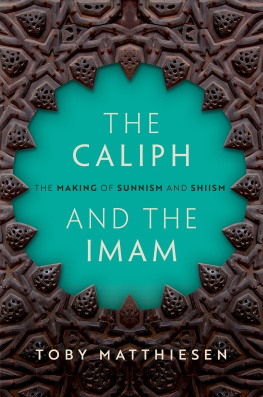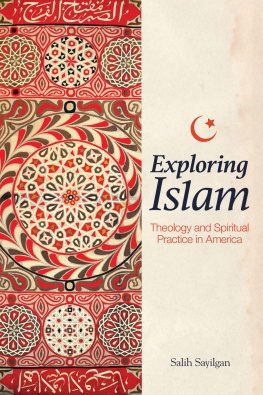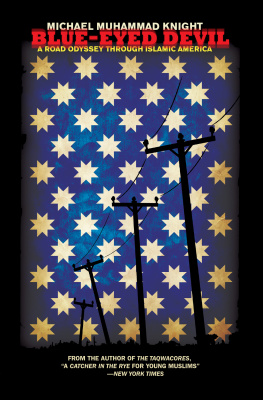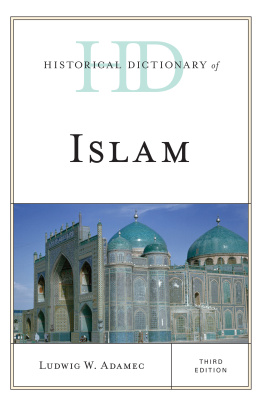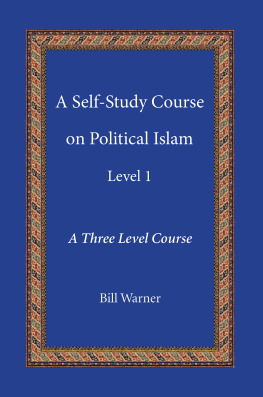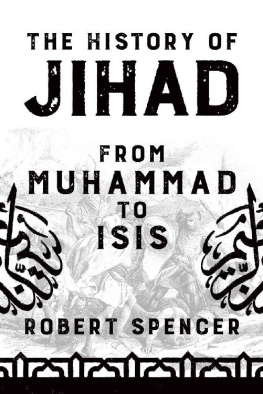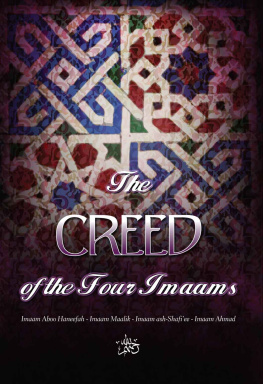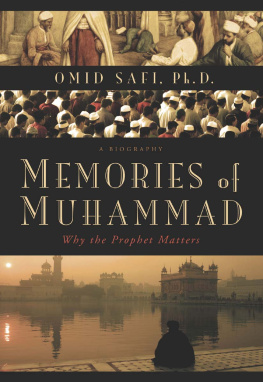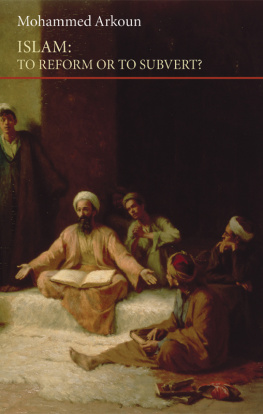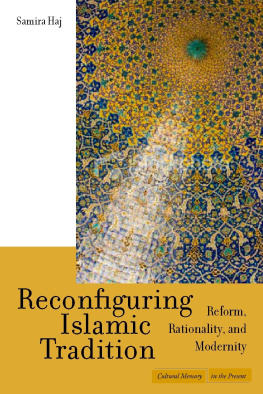Muhammad Fraser-Rahim - America’s Other Muslims: Imam W.D. Mohammed, Islamic Reform, and the Making of American Islam
Here you can read online Muhammad Fraser-Rahim - America’s Other Muslims: Imam W.D. Mohammed, Islamic Reform, and the Making of American Islam full text of the book (entire story) in english for free. Download pdf and epub, get meaning, cover and reviews about this ebook. year: 2020, publisher: Lexington Books, genre: Religion. Description of the work, (preface) as well as reviews are available. Best literature library LitArk.com created for fans of good reading and offers a wide selection of genres:
Romance novel
Science fiction
Adventure
Detective
Science
History
Home and family
Prose
Art
Politics
Computer
Non-fiction
Religion
Business
Children
Humor
Choose a favorite category and find really read worthwhile books. Enjoy immersion in the world of imagination, feel the emotions of the characters or learn something new for yourself, make an fascinating discovery.
- Book:America’s Other Muslims: Imam W.D. Mohammed, Islamic Reform, and the Making of American Islam
- Author:
- Publisher:Lexington Books
- Genre:
- Year:2020
- Rating:5 / 5
- Favourites:Add to favourites
- Your mark:
- 100
- 1
- 2
- 3
- 4
- 5
America’s Other Muslims: Imam W.D. Mohammed, Islamic Reform, and the Making of American Islam: summary, description and annotation
We offer to read an annotation, description, summary or preface (depends on what the author of the book "America’s Other Muslims: Imam W.D. Mohammed, Islamic Reform, and the Making of American Islam" wrote himself). If you haven't found the necessary information about the book — write in the comments, we will try to find it.
Muhammad Fraser-Rahim: author's other books
Who wrote America’s Other Muslims: Imam W.D. Mohammed, Islamic Reform, and the Making of American Islam? Find out the surname, the name of the author of the book and a list of all author's works by series.
America’s Other Muslims: Imam W.D. Mohammed, Islamic Reform, and the Making of American Islam — read online for free the complete book (whole text) full work
Below is the text of the book, divided by pages. System saving the place of the last page read, allows you to conveniently read the book "America’s Other Muslims: Imam W.D. Mohammed, Islamic Reform, and the Making of American Islam" online for free, without having to search again every time where you left off. Put a bookmark, and you can go to the page where you finished reading at any time.
Font size:
Interval:
Bookmark:
Americas Other Muslims
Black Diasporic Worlds: Origins and
Evolutions from New World Slaving
Series Editors: Antonio Tillis and Elizabeth West
Black Diasporic Worlds is a humanities series whose publications highlight the transnational Africana experience that has resulted from and/or emerged alongside European exploits in the Americas. Additionally, it encompasses contemporary and comparative contexts that are a byproduct of multidirectional shifting of Africana people over space and time. Further, the Black Diasporic Worlds series represents works that query the transcultural and transnational understandings of contemporary articulation and impact of Africana in Europe and other geographies outside of the Americas. Publications will look at African derived people/populations/cultures/civilizations resulting from the economic and political dynamics of new world slaving and the ways it has informed experiences, nationalistic and racial orientations, and shaped the Western world on both sides of the Atlantic. With regard to geographical scope, publications in this series will thus include works focusing on blacks in the Americas and in Europe, and could conceivably extend to the experiences of blacks beyond the Western world whose destinies have been shaped by the legacy or spillover of new world slaving.
Recent Titles
Americas Other Muslims: Imam W.D. Mohammed, Islamic Reform, and the Making of American Islam, by Muhammad Fraser-Rahim
Afro-Asian Connections in Latin America and the Caribbean, edited by Luisa Marcela Ossa and Debbie Lee-DiStefano
Envisioning Black Feminist Voodoo Aesthetics: African Spirituality in American Cinema, by Kameelah L. Martin
Receptions of the Classics in the African Diaspora of the Hispanophone and Lusophone Worlds: Atlantis Otherwise, by Elisa Rizo and Madeleine M. Henry
Between Two Worlds: Jean Price-Mars, Haiti, and Africa, by Celucien L. Joseph, Jean Eddy Saint Paul, and Glodel Mezilas
African Modernity and the Philosophy of Culture in the Works of Femi Euba, by Iyunolu Osagie
Americas Other Muslims
Imam W.D. Mohammed, Islamic Reform, and the Making of American Islam
Muhammad Fraser-Rahim
LEXINGTON BOOKS
Lanham Boulder New York London
Published by Lexington Books
An imprint of The Rowman & Littlefield Publishing Group, Inc.
4501 Forbes Boulevard, Suite 200, Lanham, Maryland 20706
www.rowman.com
6 Tinworth Street, London SE11 5AL
Copyright 2020 by The Rowman & Littlefield Publishing Group, Inc.
All rights reserved. No part of this book may be reproduced in any form or by any electronic or mechanical means, including information storage and retrieval systems, without written permission from the publisher, except by a reviewer who may quote passages in a review.
British Library Cataloguing in Publication Information Available
Library of Congress Cataloging-in-Publication Data
Library of Congress Control Number:2019956280
ISBN 978-1-4985-9019-8 (cloth : alk. paper)
ISBN 978-1-4985-9020-4 (electronic)
 TM The paper used in this publication meets the minimum requirements of American National Standard for Information Sciences Permanence of Paper for Printed Library Materials, ANSI/NISO Z39.48-1992.
TM The paper used in this publication meets the minimum requirements of American National Standard for Information Sciences Permanence of Paper for Printed Library Materials, ANSI/NISO Z39.48-1992.
For my parents and community,
who taught me al Islam of taste and its inner
and outer realities to remake the world
Learn before you practice religion, as those who practice without learning usually become so fanatical that killing becomes an essential part of their behavior.
Hasan of Basra (642728 CE)
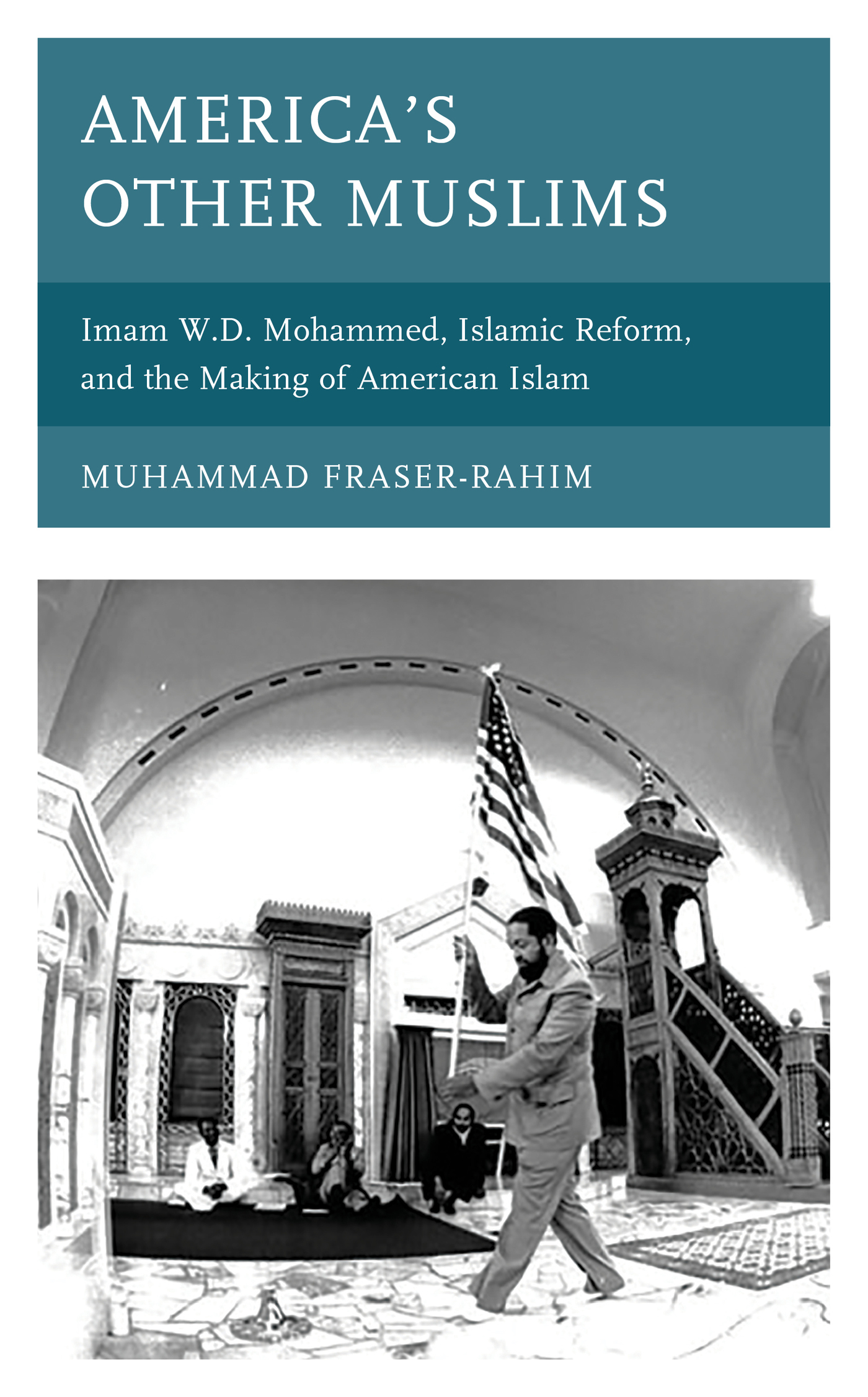
Numerous family members, friends, and colleagues have been instrumental in allowing my research and intellectual work to gain a footing in both academia and policy circles. Thank you Fatima and Yaya Fanusie, Kareem Sharif, Amir and Habeebah Muhammad, Mia Carey, Imam Luqman Rasheed, Imam Talib Shareef, Imam Earl El-Amin and Imam Benjamin Abdul Haqq, just to name a few. To my copyeditor, Sevim Kalyoncu, you were superb. I would also like to thank Laila Muhammad and the Muhammad estate for the use of W.D. Mohammeds speeches and writings throughout this book. The book is dedicated in memory of the Frasers and the Hamiltons, my maternal and paternal families, who have shaped my thinking and instilled in me a legacy of intellectual learning. Their experiences have included more than seven generations of college education and learning despite the difficulties and challenges of the African American experience. Their examples are the epitome of resilience, and for them I am eternally grateful.
Two academic scholars and mentors, Dr. Sulayman Nyang of Howard University and Dr. Alpha Bah of the College of Charleston, both of whom have passed, were influential in my intellectual and emotional growth as a student and trained me in understanding the intricacies of Africa, Islamic thought, and all things related to history, international relations, culture, and life. I am eternally indebted to them both. In addition, Shaykh Harun Rashid Faye, of the Zawiya of Moncks Corner, South Carolina, and of Senegal, West Africa, was extremely helpful in introducing me to in-depth knowledge of traditional Islamic sciences at a young age and served as a reliable teacher of understanding Islam through his lived experience and practice. Most important, I would like to show my appreciation to Herbert and Martha Fraser Abdur Rahim, my parents, who made the spiritual journey to awaken themselves and raise me and my siblings, Omar, Rabiah, Jamilah, and Aminah, in a utopian heaven in which they dedicated a lifetime of personal and community responsibility to help remake the world. Laila and Adam, savor the words and the history; this is for you.
I am also deeply thankful for the community that raised me in Charleston, South Carolina, which gave me my foundation. The red rice, the hoppins johns, the bean pies, the ginger punch, Walis Fish Supreme, Lateefss, and that hot fush (fish) in my Gullah/Geechee vernacular sustained me and allowed me to be who I am now.
Masjid Al Jami Ar Rasheed was the madrasa in which my parents were my first Arabic teachers as well as the community that gave me love and attention. This community wasnt from overseas or distant places. It consisted of AmericansAfrican Americans, Black Americans, descendants of enslaved Africans and white Americans alike, and in this village I learned the foundation of being me. I am eternally grateful! And finally, to Ms. Robinson (C. E. Williams Middle School), Bro. Nathaniel Razzaq, Bros. Hattie and Nabee Karim, Bro. Sadruddin El-Amin, Bro. Ernest, and the countless others from all over the world who have affected me, you all resonated with me more than you even know.
The historical links between religion, spirituality, and cultural identity on the continent of Africa and their journey to and development in the New World have been, in recent years, a source of increased discussion within academia and the diaspora of people of African descent. As a result of this growth in interest, the varying collective stories of the ethnic and religious descendants of Africa have been examined to understand how their origins in Africa have either been adapted, acculturated, or reformed into a new experience in new lands.
Islam arrived in Africa in the eighth century after dispersing out of Arabia and spreading into modern-day North and West Africa. As such, the experiences of Islam in Africa established Islams formative years on the continent via social agents of change in the form of traders and Sufi mystic interlocutors. The well-documented experiences of key Islamic personalities as well as Africas rich Islamic heritage throughout the continent, specifically the Sahel region, detail a history of intellectual learning and scholarship in places like Timbuktu, Mali; Agade, Niger; and Kano, Nigeria.
Font size:
Interval:
Bookmark:
Similar books «America’s Other Muslims: Imam W.D. Mohammed, Islamic Reform, and the Making of American Islam»
Look at similar books to America’s Other Muslims: Imam W.D. Mohammed, Islamic Reform, and the Making of American Islam. We have selected literature similar in name and meaning in the hope of providing readers with more options to find new, interesting, not yet read works.
Discussion, reviews of the book America’s Other Muslims: Imam W.D. Mohammed, Islamic Reform, and the Making of American Islam and just readers' own opinions. Leave your comments, write what you think about the work, its meaning or the main characters. Specify what exactly you liked and what you didn't like, and why you think so.


